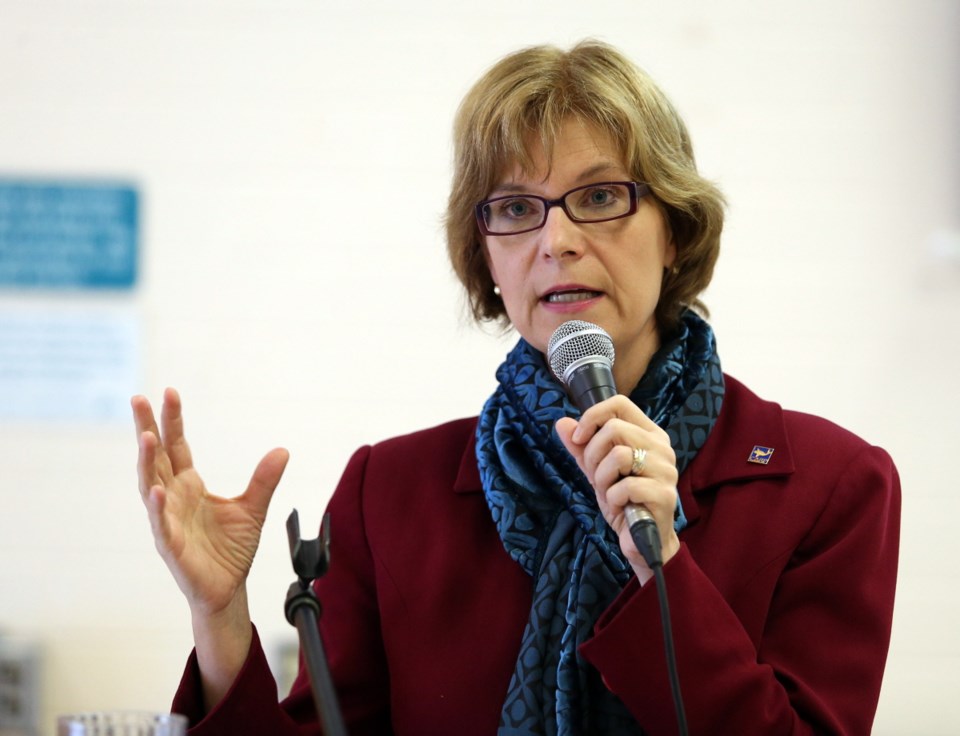B.C.’s seniors advocate is concerned about the declining income of seniors, especially acute in B.C. relative to other parts of the country.
Citing the latest income survey from Statistics Canada, Isobel Mackenzie said despite good news for two-parent households in B.C., whose median income is increasing, for those 65 and older, “the story is the complete opposite.”
“We know that seniors have the lowest median income of any age cohort over 25, and now we know that, in B.C., seniors’ incomes are actually shrinking while other age groups are experiencing significant increases,” Mackenzie said.
B.C. senior families saw their annual median after-tax income fall 5.7 per cent to $55,100 in 2014 — a drop of $3,400 from the previous year. The decline for a B.C. single senior was even steeper, with a 6.3 per cent drop to $26,700 since 2013, a change of $1,800.
Meanwhile, the national average showed an increase of $1,000, or 1.9 per cent, to $54,500 for senior families, and an increase of $600, or 2.3 per cent, to $26,900 for single seniors.
Selina Robinson, B.C. NDP critic for local government, sports and seniors, said many people over 65 “have very, very limited incomes.” Moreover, the older generation is more apt to suffer in silence, decline to ask for help, and struggle unaware of the assistance available to them.
“They hum along, making ends meet,” Robinson said. “Their hydro rate goes up, their rent goes up, and they still pay their bills — they always pay their bills.
“And so they see their food budgets shrink or they have to make a decision about which medications to purchase, or they decide; ‘I won’t take that medication every day, I’ll take it every other day.’ ”
By comparison, B.C.’s single working-age individuals saw a 4.7 per cent increase in their income, while working-age couples with children saw a 9.7 per cent increase. That brought median incomes to $30,900 and $97,600, respectively. Nationally, there was a decrease of 2.0 per cent for singles and an increase of 4.5 per cent for couples with children.
The Statistics Canada data show that 30 per cent of single senior women in the country are considered low-income — triple the level of two decades ago, Mackenzie said. The percentage of seniors living on low incomes — $21,773 or less for a household of one, or $30,792 for a couple — rose to 12.5 per cent.
As well, more than 20 per cent of seniors are renters.
For those with home equity, the government needs to find more creative and responsible ways for seniors to unlock it so that they can cover both expenses and health-care needs, she said.
A number of factors contribute to senior poverty, Mackenzie has said, including record-low interest rates, life expectancy exceeding the time frame of a Registered Retirement Income Fund, and the inability of private pensions to provide cost-of-living increases.
“In Canada, single people over 65 have a median income of $26,000,” Mackenzie said in an open letter last month.
“This means that fully half of single Canadian seniors are living on less than $26,000 a year.”
In B.C., the lowest-income seniors, about 54,000, receive the B.C. Seniors Supplement, which has remained the same amount for over 25 years, she said.
Robinson said the supplement is $49.30 a month.
“This has to change.”
Seniors' incomes in B.C. and Canada
| Median after tax income (2013) | Median after tax income (2014) | Change (per cent) | |
|---|---|---|---|
| Senior families in B.C. | $58,400 | $55,100 | - 5.7 |
| Single seniors in B.C. | $28,500 | $26,700 | - 6.3 |
| Senior families in Canada | $53,500 | $54,500 | + 1.9 |
| Single seniors in Canada | $26,300 | $26,900 | + 2.3 |
Source: Statistics Canada



